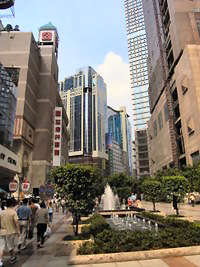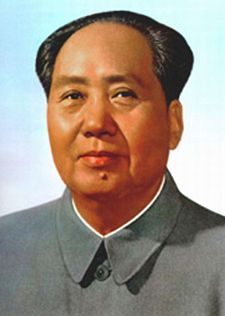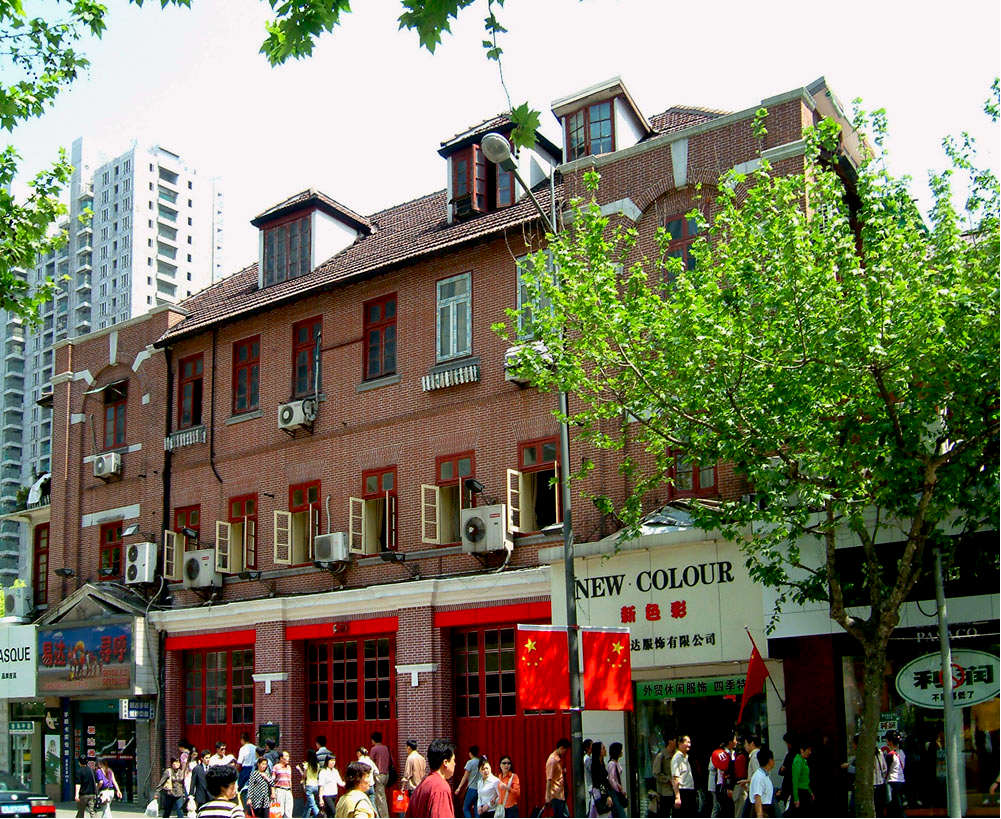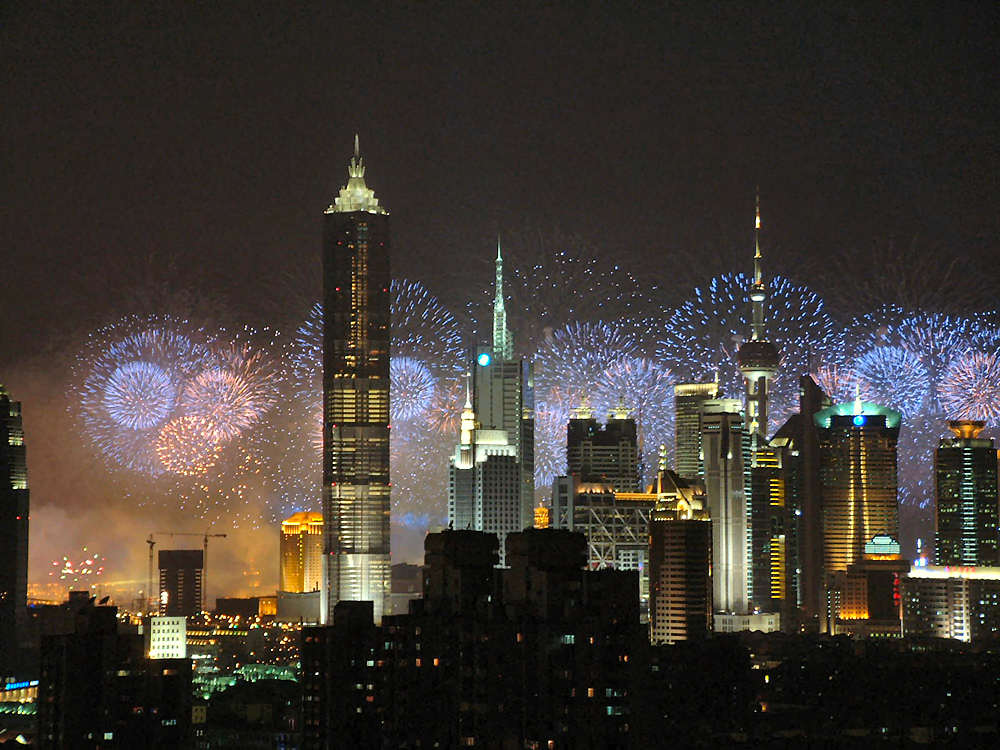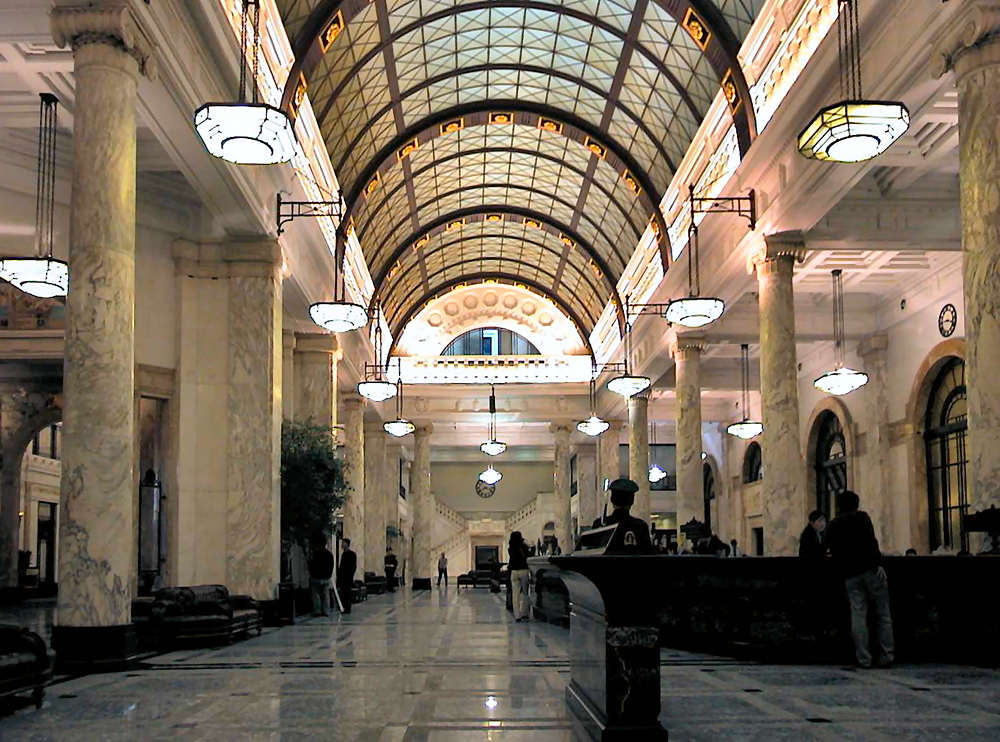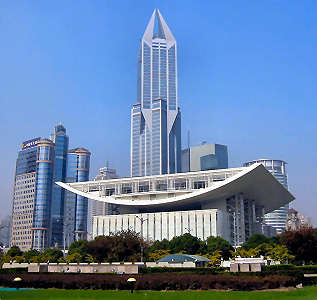|
||
|
Privacy Policy | Editorial Policy | Join the Association | List of Members | Contact us | Print this page |
||
|
Figuratively Speaking.
Frank Alley.
|
||
|
|
||
|
Living and Working in China.
As the Olympics have recently finished and while China may still be in our consciousness, I thought I might tell of some of my experiences while living there.
In 1998 I went to China for a visit, wearing rose coloured glasses of course, and then decided to go back and get a job. My first job as an English teacher was with a Singapore company called Informatics and within 3 months, without any real effort on my part, I became the English course supervisor for the two campuses in Shanghai (there was a real shortage of experienced teachers). There were all manner of students, some of whom were professionals wanting to improve their English, but most were those who did not qualify for university entrance.
|
||
|
Education in China.
In terms of age of kids
attending, it’s no different from our school system in Oz. Kids start at
kindergarten and move through
But they become bloody good at mathematics - compared to our kids.
|
||
|
In aviation, a check-ride ought to be like an attractive woman's skirt, short enough to be interesting but still be long enough to cover everything.
|
||
|
Everyone in China, through schooling, learns the same stuff. If you ask a Chinese person where they would like to travel to and the answer is say ‘Italy’ and you ask why, the answer will be ‘Italy is a romance country’. And so on, France is a ‘fashion country’, Egypt is a ‘mystery country’, Australia is a ‘beautiful country’. England has English gentlemen with bowler hats and umbrellas, and David Beckham. America has Michael Jordan of basketball fame, and the Chinese love him, but nobody would want to marry him because he is black. Black people are apparently dirty, so the Chinese say, even though they have never met one. It is a country of ritual. Ritual procedures and ritual thinking. Except for the educated classes.
So how do they get into the educated class? With difficulty. First of all, education is free for kids up to and including year 9, say 15 years of age. After that, it costs money, not unlike a private school in Oz. There are however an increasing number of international schools in China where locals can learn alongside foreigners (westerners) and these schools are expensive. By the way, foreigners are called ‘wai guo huai dan’, literally translated as ‘foreign bad egg’ or ‘foreign devil’! In Shanghai I was often referred to as ‘lao wai’ which translated literally means ‘old foreigner’. Bugger!! All foreigners were called this except foreign children who were called ‘xiao wai’, meaning ‘little or young foreigner’.
In the last year of schooling the kids who have made it thus far, sit for the ‘gao kao’ (pronounced ‘gow cow’) examination, a ruthless chaff sorting exercise. As a result, many really talented students cannot get to university, certainly not to one of the great universities such as Qin Hua (above), Renmin in Beijing or Fudan, Jao Tong in Shanghai. These otherwise clever students have literally nowhere to go in education because there are next to no trade training schools. Parents who are rich enough (and there are more and more of them in China now) send their kids to private colleges to be prepared to study at overseas universities. England, the US, Australia and New Zealand are popular choices for study. Currently one of my former students is studying Physics at Cambridge University.
|
||
|
In Shanghai, some parents put their children into a hotel with hired bottles of oxygen in the week preceding the Gao Kao examination. During the period of the exam, the block in which the school is sited is sealed off from traffic, lest students be distracted by extraneous noise. No one can enter the school. So why the fuss?
Traditionally, Chinese children are expected to grow up and care for their aging parents. A household will have three generations with perhaps the grandmother being the most influential member of that household. Both parents will be out working and the grandparents will in effect raise the child. I say child, because there will be only one, due to the one-child policy. Competition for jobs is so fierce that it is important that the child get the best education possible. The downside of this policy is the advent of ‘xiao huang di’ or ‘little emperors’.
China is facing a sociological problem of a generation of selfish, spoiled young people in the community. As children they learned to get control of the family, both sets of grandparents as well. The Chinese have a genuine love of children. With my own little boy I found that he got affectionate attention in the streets, even from young men, something that would not happen in Australia in my experience. At the age of 4 or 5 he would get into animated conversations in Mandarin or Shanghai dialect and I would hear him say ‘he is NOT my grandfather, he is my father and he is NOT an American, he is an Australian’! At other times I would stand there ‘jealousy’ watching him being swamped by beautiful young women, the little bugger.
With a good Gao Kao score the
student goes to university, really from one school situation to another.
In China, teachers are often appraised on their students’ results, so some will even assist students in cheating. From the Olympic games in Beijing, you will have noted the importance of display for the Chinese. Having a piece of paper with a degree written on it is more important than the skills and knowledge that may have been gained during the course. Some foreigners who have been in China for a few years will look at the startling stainless steel and glass skyline of Shanghai and declare that is all just a movie set, that behind the façade is the old corruption and inefficiency that has existed in China for millennia.
With no effective trade training, building and maintenance work is done by ‘peasants’ who have learned on the job. Electrical wiring is frightening to see! TV ‘technicians’ are self-taught as are many computer ‘experts’ who often have enough knowledge and skill to wipe your hard drive and lose all your files…it has happened to me. So I did some ‘self-teaching’ myself. Apartments are bought before they are finished, mostly because of the demand and the increasing wealth of the Chinese middle class. It is accepted that the new owner will have to do extensive work, such as resiting of doors. I once looked at an apartment and the bathroom had been built in such a way that if you put the bath where it was meant to be, that is, where the taps and drain were, then it would be impossible to open the door.
At Informatics I did some teaching of Intel engineers. In one case, their usual American teacher was absent and I took the class for her. The class was concerned when they found that I had prepared the lesson, rather than just have ‘free talk’. Then one said to me ‘You’re not American are you?’ ‘No, I’m Australian’. After a quick conference amongst themselves, they walked out!
At Informatics, every American apart from two trained professionals, were what we called ‘backpackers’, basically useless, arrogant troublemakers. But I must say that the most useless specimen I ever interviewed was an Australian. I put him in front of a class after giving him a weekend to prepare a lesson and he just stood there. Didn’t move. Said nothing. Then in the office he told me he didn’t like teaching anyway and I just wanted to punch his lights out. A Chinese Malaysian used to hit a bottle of whisky before going to class. A big Canadian used most of his lesson time to talk about himself and had a T-shirt with ‘I am so great I scream my own name during sex’.
An American, who was actually a decent teacher, was deported for trouble with Chinese women. Another American wanted to know if you could get toothpaste in China. One had not heard of Shanghai let alone know where it was before he came to China. One American former marine, a Vietnam veteran, finished teaching a 6 month course in 3 weeks. Actually he was a great guy, just a hopeless teacher. Complained that when he was a medic he got shot in the leg when he was having a really good time firing a machine gun at the VC. One Australian (ex-Brit) I recruited didn’t want to teach the course but wanted to fill the student’s heads with crystals, colour therapy, aromatherapy etc…had a bit of trouble with her. One Canadian spent a whole course telling the students about his health problems. I had to reteach the course. He used to come in of a morning, sit in corner near my desk and ask me to take him to the hospital, until I would yell at him ‘get to your f…ing class’ and up he would get and get to his f…ing class.
Another Canadian with a Chinese wife, came for an interview, I gave him a contract after he gave a rather ordinary demonstration lesson on the Friday and we never saw him again. He got scared and really believed he was being followed by Chinese police and jumped on a plane and flew to Canada. I have no idea what happened to his wife. A young Brit, trained primary school teacher had a mantra…’no, you can’t ask me to do that’. Another Brit used the Chinese assistants for private business and wrote soccer news for a local newspaper. Did no real teaching, just got the students to teach themselves. He walked out of his apartment leaving large debts. There were two really good male American teachers and one excellent female American. She was rejected by the Chinese students because she had an Asian face. She was born in America of Vietnamese parents. The company manager used to tell me that he wanted me to ‘maintain the teaching quality’. What he really meant was ‘save us from being sued’. I became a fire fighter putting out fires everywhere. A bit like the Keystone cops actually.
In a later job I had recruited a Brit from Australia. Picked him up at the airport and gave him texts, a set of instructions and things not to talk about with Chinese students. He told me that he liked to provoke the Chinese and even though I warned him against that, went ahead at the university and told the students that the whole world knew that the Chinese were the laziest people in the world. He provoked them over Tibet, Taiwan and Xin Jiang. I got a tipoff too late and the Chinese education commission told us to have him out of China by the next day.
With another Intel class I used to get them to talk about an event that caused a change in their life’s pathway. One young woman, an Electronics engineer told her story. She grew up as a peasant in a village, with extremely poor parents. The villagers collected money for her so she could go to middle school. Sometimes she could not go to school, as she had to help her parents in the fields, then went back to school. She must have been very bright because she won a place at the great Fudan University in Shanghai. She borrowed money to pay her fees and borrowed more money to pay it back. Eventually she graduated as a qualified engineer and finally got a good job with Intel. Her classmates, all city folk, sat with mouths agape, and full of admiration. What is interesting about this story is that it could not have been told in the Chinese language. English provided the bridge, outside their culture, which allowed her to tell her story without shame.
After a couple of years with Informatics I became a freelance for a year. During that year I did a lot of corporate training, many of the students being engineers, properly university trained engineers. Many of the foreign ‘teachers’ had no teaching qualifications even though they did have university degrees, like that Canadian hypochondriac working for me at Informatics. He had a degree in Sociology, which included such demanding subjects as ‘Bush Walking’. Even so, the foreigners had white faces and spoke English, which apparently made them superior to the Chinese.
|
||
|
A "GOOD" landing is one from which you can walk away. A "GREAT" landing is one after which you can use the airplane again.
|
||
|
The Siemens company, who make among other things, mobile telephones in China, needed to take their Chinese engineers to Germany for further training, but in English. One group of them undertook an intensive course, full time for two weeks. I was to take the afternoon classes and a young woman from South America took them in the morning. When I arrived on the first afternoon of class, the engineers were fuming. These were mobile telephone engineers and their morning was spent being taught how to use a telephone! After I introduced myself to this angry mob, one of them, Jack, said to me ‘Frank, we all have masters degrees and some have PhD’s, could you make the work difficult for us?’ ‘OK, I’ll teach you how a superheterodyne receiver works in English, but after I have finished, you are going to teach me about mobile phone communications….in English’. What followed over the next week was simply exciting. I was well and truly out of my depth with modern electronics, but knew enough to ask questions. It was wonderful to see them arguing with each other in English as I had banned the use of Mandarin.
I was lucky enough to teach a few groups of Siemens engineers, one of which contained an engineer who was Turkish! Now there, I had come all the way to China to teach a Turk. In another class I taught a Pakistani. I later met students from African and Middle Eastern countries doing masters degrees in Chinese universities. One of those first Siemens engineers I taught told us his story. In his day, university graduates were placed in jobs and had no real choice. As a 4 year degree graduate he was sent to a far off city, away from his family. He earned 400 RMB per month, that is about $70 AUD, and with this had to support himself and his family back at home. It is common in China for husband and wife to live far apart, so they can have jobs. This man was one of the lucky ones to get a well-paid job with a joint venture (JV) company.
Not far from where I was living in Pudong (East side of Shanghai), I had classes in a skyscraper called Times Square (right). These were Alcatel (French mobile phone company) engineers and administrative staff required to improve their English.
By the way, all Chinese students learn English at school and university these days. So there I was walking down a corridor in the Alcatel office, when this utterly drop-dead gorgeous creature walked towards me. As I opened my mouth to speak to her she said ‘Bonjour monsieur’. Her second language was French and there I was desperately trying to crank up my awful schoolboy French. Bugger!!.
|
||
|
This bloke had a master’s degree in engineering and he had to support his family from afar on $70 a month.
|
This is Jack, the angry engineer, who wanted to be taught something useful. |
|
|
It only takes two things to make an aeroplane fly, airspeed and money.
|
||
|
Over time, I taught Chinese students whose second language was German or Russian, not to mention French. The Chinese got well ahead of us after Deng Xiao Ping, who succeeded Mao Zedong, said words to the effect ‘take from the west what is good and useful and reject the rest’. Our education systems in Australia, like our governments, have been utterly neglectful of the need for foreign languages, especially those of Asia and particularly the languages of China and Japan. It simply makes good business sense. The Chinese have stolen a march on us.
I also taught courses in report and safety regulation writing to the engineers at the Dupont factory in Shanghai where they made Lycra. I taught writing and presentation skills to the shift engineers at Nabisco in Suzhou, a city about one hour by train from Shanghai.
|
||
|
I did some teaching for a Chinese woman whose husband worked with Interpol. She had set up a school and was doing something that was illegal which I pointed that out to her. Her reply was ‘don’t worry, I am the personal secretary to the commissioner of police for Shanghai’. No problem.
After a year of freelancing
(illegally because you can’t get a work permit as a freelance), I took a
job as Director
Speaking of which, on that
morning, when I went into the office having seen the devastation on TV, I
found the Chinese staff bubbling with excitement and clapping their hands.
I asked why and they told me they were so happy to see America harmed. I
found all this incongruous about the Chinese. They hated America, but
embraced American basketball, Coca Cola, Pizza Hut, McDonalds and KFC and
what some might call the worst of American culture, like the long baggy
shorts, baseball cap turned sideways and so on. They also hate the
Japanese, as well they might after what happened to them in the 30’s and
40’s, but they prefer to buy Japanese products to their own and look to
Japanese fashions. Their own products are perfectly good, but Chinese
people still don’t trust things made in China. For example, if you go to
one of the big department
Qingdao is most famous for its beer (Tsingtao to use the old British spelling). The Germans had a flourishing colony in Qingdao until after WWII and they brought with them their beer making skills. As the senior visiting member of Holmes I was always the guest of honour at lunches or dinners, a dangerous place to be. You sit to the right of the host and in the case of Qingdao University, he was the Communist party secretary and he liked to drink. But I’m an Australian and they are used to Yanks. At one lunch we drank 8 bottles of beer between the two of us and he was so happy. So happy in fact that the professors at the place demanded that I resign from Holmes and come to work at the university. They reckoned I should be drinking fresh Tsingtao beer rather than the stuff in Shanghai.
|
||
|
(Left) Lunch with the Qingdao University communist party secretary as host. The foreign English teachers were all Mormons from Canada and the US and may have been indulging their faith illegally in China. The business lecturer, an ex-US army master sergeant, turned out to be a paranoid schizophrenic who heard voices in his chest and treated his Chinese students with utter contempt. He had to go. |
||
|
When I first arrived in 1998, red wine made in China would not find its way into the cheapest casks in Oz. Dreadful stuff made by the French for the Chinese palate, meaning weak, insipid and sweet. Things have changed a lot and now the Chinese are making decent red wines. The Australian winemakers were silly not to get into China before the French. We have more experience growing wine grapes in marginal land than the French do. Our wine makers would have done a better job. |
||
|
The three best things in the aviation world are: (1) a good landing, (2) a good orgasm, and (3) a good bowel movement. A night carrier landing is one of the few opportunities to experience all three at the same time.
|
||
|
At the big department stores you can now buy decent wines from every country in the world where table wines are made. Jacobs Creek, for example, costs $14 a bottle. Good French wines can be had for less than $10 a bottle. Johnny Walker (700 mL) costs $16 a bottle. Makers Mark bourbon retails at about $20 a bottle. The choice available now is fabulous as are the prices.
It is possible to see at banquets, rather high ranking Chinese officials putting sugar in their wine. Good grief. The government has a campaign to get Chinese to drink table wines with banquets rather than their traditional poison, which is a rice spirit with alcohol content of 50% and more. The Chinese don’t hold their drink too well and this ‘bai jou’ just wipes them out. One of the most expensive bai jou to be found at banquets is ‘Mao Tai’ which I reckon is pure poison. One of my students bought me a couple of bottles as thanks and they would have cost him over $100 AUD. Poison. Apart from importing, the Chinese also make brandy and it costs about $3 a bottle; not as poisonous as the bai jou. For a cheap drunk, it’s passable and certainly OK as a mixer.
|
||
|
We’ve all heard about the apparent cheating by the Chinese gymnastic team at the Olympics in that a couple of the girls were thought to be under 16 years of age.
Here are three teachers with 4 year university degrees and a few years teaching experience. How old do they look?
When I was teaching in schools in China, I was sometimes unsure whether I was talking to a student or a teacher. |
||
|
|
||
|
After a year with Holmes I got another job, but in the meantime I was invited to do some teaching for a week at a time in a few middle schools. The first was in a city called Wuhu, which was one of the treaty ports after the Treaty of Nanking in 1842 in which the British extracted a number of concessions from the Chinese, the main one being the right to trade in number of ports in China. Wuhu is known as one of the ovens of China with temperatures regularly in the 40’s in summer.
Then off to Yong Quan outside
Chongqing and then, the most exciting of all, Naiman in Inner Mongolia,
far north China. The nearest city to Naiman is Tong Liao and is 180 km distant. I flew from Shanghai to Shenyang, was picked up by a minder (one of the English teachers) and driver. There followed a rather terrifying 5 hour drive, but we did get to the VIP hotel in Naiman at about 9 pm that night. I was embarrassed to find a whole lot of VIP’s, a number of whom had travelled from Tong Liao, to meet ‘the foreigner’.
It turned out that I was the first white face to ever visit Naiman.
During the banquet my minder told me I was about to receive a traditional Mongolian welcome as a beautiful young woman in traditional dress approached me, carrying a white scarf and silver cup. I stood to meet her and she faced me and sang to me. I later learned that every Mongolian girl can sing. It was quite beautiful and she offered me the ‘wine’, well, the white spirit as she sang. The minder told me she would continue to sing until I had finished the bai jou. She then put the scarf around my neck. I had apparently received what is called a ‘ha da’ and while all Chinese people have heard of the ha da, few have witnessed one, and there I was receiving one. It was rather overwhelming.
Traditionally one is expected to return the scarf, but I asked if I could keep it, and it is still with me today. |
||
|
|
||
|
The lady in the centre holding forth was the Director of the Education Comm-ission for the city and region of Wuhu. She had just returned from Australia where she had been sent to study Australian education systems, syllabuses and teaching methods.
The man on the left is the school principal and the other the deputy principal. All of the men smoked, but none of the women at the banquet. The food, as always, was fabulous.
|
||
|
|
||
|
Teaching was done in the school hall and I faced about 800 students at a time, they just staring at me until they got used to this strange foreign devil. On one day I had as my students 800 teachers from the region, all very reserved and perhaps a little afraid. I had a sound system on the stage and played them AC/DC and had them punching the air.
One night the school put on a concert and the choir sang ‘Click go the Shears’, in English of course. They also performed traditional grass dances. In that area, the usual second language is Russian and I was pleased to see that new schools were being built where the language of instruction was to be Mongolian, not Mandarin. So, it seems despite western propaganda, the Chinese government is interested in maintaining the cultures of its different indigenous nationalities.
There was constant worry about my safety and I wasn’t allowed to go anywhere alone. One morning after breakfast one of the teachers took me to school on the back of his motor cycle and unfortunately the local communist governor saw the event and went into a panic for fear the foreigner might be injured. I wanted to break out and the teachers got permission for me to have a meal with them, outside the VIP hotel. The meal was in a small traditional restaurant and we had hot pot, with one of the ‘delicacies’ donkey penis. Makes a man of you! I got to eat all manner of things in China.
On the last full day in
Naiman I was taken for a drive out into the grasslands and desert. Winter
was approaching, snow was beginning to fall and farmers were gathering
maize for storage over the freezing winter. We had lunch at a reservoir
where fish are grown for the central government in Beijing. We had what I
thought to be the best fish I had ever eaten.
These northerners, as poor as church mice, were the most generous people I had met in China. A fully qualified and senior teacher earned less that $80 per month.
Then I took up my job as a lecturer in Physics and Applied Mathematics for Anglo-Chinese Education Management Ltd (ACE) in partnership with the Northern Consortium of UK Universities (NCUK). I spent a year in Chongqing (pronounced Chongching), a city of about 8 million perched in a valley in the mountains. Chongqing was the HQ of the American services supporting the Chinese against the Japanese under General Stillwell, who incidentally, despised Chiang Kai Shek who eventually became the president of Formosa (Taiwan) after the communist revolution and victory in 1949. Chiang Kai Shek was an utterly corrupt warlord who ruled China for a time. Pictured right is "Three Gorges Square" in Chongqing and we lived in a 13th floor apartment above the square...best place in which we lived in China.
|
||
|
|
||
|
In the aviation world, it only takes five years to go from rumour to standard operating procedure.
|
||
|
|
||
|
This picture was taken in Three Gorges Square in Chongqing.
For a festival week, the organisers had arranged for a display of thousands of potted tulips. By the end of that week, not one pot had been stolen, nothing had been vandalised.
What chance of that in an English speaking western country?
In my near 8 years in China, I saw one example of graffiti, and even that was hard to see. |
||
|
|
||
|
My students were Chinese 18 to 20 year olds who were preparing for undergraduate studies in the UK or Australian universities.
Whilst in Chongqing I met other foreigners, some of whom were buying from Chinese factories, such things as Yamaha motorcycle engines. Well, the engines would have had Yamaha stamped on them and they would have been faithful copies. In SE Asia you can buy Yamaha motorcycles made without any assistance from Yamaha in Japan. The Chinese are brilliant at copying anything. I bought my first Rolex watch in Wuhan for about $30 and in Shanghai I bought a Rolex Submariner, brand new for $25. Still works. (Right - retirees selling fake Rolex watches)
After that year I was promoted and became the one and only Australian to become a manger in the company. I was sent to ACE Wuhan, which had the reputation of the most difficult to manage, the highest failure rate in its students and the least profitable.
It was here that I saw the real arrogance of the English and Germans when it came to the Chinese. When the company had started in Chengdu, Chinese staff and teachers were not allowed to enter the English teachers’ staffroom, even though it was their country! I had much the same problem with some of my foreign teaching staff.
Wuhan was also a treaty port. There were 550,000 university students in the city when I was there. Wuhan is the capital of Hubei province and Hubei people are notorious throughout China as the most difficult to deal with. We have all heard of ‘win-win’, but in Wuhan it had to be ‘win-you lose’ and if that could not be achieved they were happy to have a ‘lose-lose’ situation. Wuhan also has a strong French presence due to the Citroen factory producing cars for China.
|
||
|
Living in China.
In China, a formal contract can be worthless. What is important is a relationship. So, to do business in China you have to form a good relationship with all involved. For example, if you have a small business in a building, you need to regularly buy cartons of cigarettes for the security men, or they will turn away your customers. To start a business you will need a licence, so you need to flatter government officials by taking them to dinner and buying them gifts to make them feel important. Part of the problem is that during the Cultural Revolution which ended in 1975, nobody wanted to take responsibility for anything because it was simply too dangerous. To survive people had to become proficient liars and to this day, many Chinese see nothing wrong with lying. I had an American colleague who was married to a Shanghai woman and during the Cultural Revolution as a child, she was beaten by her father once for telling the truth. For the sake of family survival, she had to learn to lie.
During the Beijing Olympics opening ceremony, many people noticed that there seemed to be no reference to Chinese history of the 20th century. Why would they want to highlight the most tragic period in their history? As a result of the policies of Chairman Mao, 70 million Chinese people died. He was on a par, if not worse than the two other monsters of the 20th century, Hitler and Stalin. Although his picture is everywhere and is on their banknotes, educated Chinese view Mao Zedong with utter contempt and derision. Many people join the communist party, because if they don’t, they cannot get promotion.
The period of Japanese occupation of China is also too awful to look into. There was a program called 731, the Japanese had in Harbin, in the north of China that not many westerners know about. This was where the Japanese doctors carried out medical experiments on Chinese, infected villages with bubonic plague and dissected the victims whilst still alive. And that was just a small part of what they did. What they did to the Chinese in Harbin makes the Nazi medical experiments look like child’s play. At the end of the war, the doctors involved knew they would be tried as war criminals, so they found a way out. The doctors approached the US army and offered them the documented results of their experiments for safe passage back to Japan. Not one of them was ever prosecuted. Is there any wonder the Chinese call us ‘foreign devils’?
Of my seven and a half years living in China, I spent 5 of those in Shanghai. I would say that Shanghai is not China, it is Shanghai. The Shanghainese are a proud people and refer to other Chinese as hicks. A Shanghainese would never be caught getting his hands dirty, none of them would work as a waiter in a restaurant. When making an order in a restaurant, a Shanghainese does not even look at the waiter/waitress, they being beneath contempt apparently. However, they are very business orientated and speak a different dialect to Mandarin. In fact, you can ask a Shanghainese a question in Mandarin and he will answer in Shanghai dialect even though he speaks Mandarin. Not unlike the French in my experience. All schools now have signs displayed ‘ching jiang Putong Hua’, which translates as ‘please speak Mandarin’.
Shanghai was once known as the harlot of the east and became the home for all sorts, millionaires from Europe, England and the US, escapees on the run, criminals from everywhere, con men, spies, you name it. After the Russian revolution in 1917, many ‘white Russians’ fled eastwards to Vladivostok and eventually into northern China. Some found their way to Shanghai and in particular, the beautiful, tall, blond Russian women were in demand. Some British businessmen divorced their wives to marry these Russian princesses.
As Jews in Europe became stateless, many found their way to Shanghai and set up a successful community, until the Japanese took Shanghai. The Jewish ghetto was in what is called the Hongkou district, just north of the bridge crossing Suzhou Creek, which runs through the city. There is a park called ‘Bridge Park’ which is reputed to once have a sign put up by the British which said ‘no dogs or Chinese allowed’. The Nazis encouraged the Japanese to exterminate the Jews, but that was refused. It seems that the Japanese felt an obligation to the Jews after some previous conflict with the Russians. The ghetto was eventually bombed by the Americans in an effort to destroy oil dumps nearby. Japanese soldiers were surprised to find Jewish doctors tending their wounded.
|
||
|
The Oriental Pearl Telecommunications Tower in Pudong, the east side of the Huang Pu River.
It is the tallest building in Asia, with a convention centre alongside (the globe to the left).
Close by, a Japanese developer is erecting what will be the tallest skyscraper in the world. |
||
|
|
||
|
The first Chinese communist party meeting was held in Shanghai. The site is preserved in a revamped section called Xin Tian Di (meaning new heaven and earth). This area contained old warehouses and a Hong Kong millionaire bought up the place and had it refurbished. It is now a stunning upmarket shopping and restaurant area. It is in what used to be the French concession and so naturally it has outdoor cafes. Jackie Chan has his own restaurant in Xin Tian Di and boasts a 2 month waiting list for a table.
My office, when with Holmes, was next to Xin Tian Di and was housed in the colonial French police station. Next door was the fire station (right) in which another Alley had an office in the 30’s. Rewi Alley of New Zealand held the post of director of health and safety for Shanghai and is one of the few westerners still revered by the Chinese. He died in Beijing in 1987. He had been offered a knighthood in the 50’s by the New Zealand government, but turned it down. One of his great successes was the introduction of trade training schools outside the big cities.
Another westerner revered by the Chinese is Dr. Norman Bethune, a Canadian ladies man, and an alleged drunk, who saw action in the Spanish civil war in the 30’s and is renowned for performing the first battlefield blood transfusions. In China he quickly became a favourite of Mao Zedong, helped in the revolution and sadly died after a minor cut, incurred during surgery, went bad.
|
||
|
The APEC 2000 fireworks display in Shanghai. This picture was taken from my apartment on the 34th floor.
During APEC, all the vendors of pirate DVD’s, CD’s. clothing etc… were got off the streets, out of sight.
Apparently the same thing happened during the Beijing Olympic games. |
||
|
|
||
|
It amused me that the NSW government, in its pathetic efforts to get reliable ticketing for its transport system, completely ignored what was done in Shanghai and Hong Kong. There are now 9 underground subway lines in Shanghai, the trains are utterly reliable and run on time and often (I never had to wait more than 10 minutes for a train). The most expensive fare for the longest trip is 8 RMB, ($1.25). Buses are even cheaper. One transport card does trains, ferries, buses, taxis and it is just so easy to use.
Of course, it is about economy of scale. Shanghai has an official population of 13 million, but there are probably as many as 17 million people in the city. The other 4 million are not registered Shanghai residents, many being itinerant workers. Of the world’s construction cranes, 25% are in Shanghai alone. The city, like the rest of China, is a building site with 30% of the world’s construction steel being used in China and about 50% of the world’s construction concrete. When you are there amongst it all, you feel like you are part of a pinball machine, but well and truly alive.
|
||
|
Typical Shanghai outdoor fruit and veg stall and a supermarket section. The outdoor stall (left) was next to a bus terminal and just opposite the front gate of our village. The big shopping centres (about 6 nearby), like our Westfields and Stocklands, offer free shuttle buses to the gate, arriving every 30 minutes.
|
||
|
|
||
|
The city is divided roughly in two, by a river (Huang Pu River) running north/south. The Huang Pu Jiang joins the mighty Yangtze River further north of the city. Shanghai is a port and its existence may be owed to the British who insisted, with the aid of gunboats, in trading there, rather that just in Tianjin in the north and Guangzhou (Canton) in the south.
|
||
|
Interior of the original HSBC bank in Shanghai. (The Hong Kong and Shanghai Banking Corporation).
|
||
|
|
||
|
A stroll down the west bank of the river on the Bund (Chinese call it Waitan) will reveal the colonial past of the city though the European architecture. In 1949, when the westerners were thrown out of China, the buildings were taken over by the new communist government for offices. Much of the interior decoration was simply hidden, but has now been restored. I have included a picture of the interior of the original HSBC bank, but didn’t take more because I got a good finger-wagging from the security guard. (Click HERE to download an interesting PDF booklet which outlines the history of the HSBC)
One of the most famous buildings is around the corner in East Nanjing Road, the Peace Hotel (He Ping Fandian), which was owned by the millionaire Sir Victor Sassoon, an Iraqi Jew. His penthouse was on top and the hotel included a jazz band. The hotel still has a jazz band.
(Click HERE for some wonderful photos of the Bund).
|
||
|
The famous Bund on the west bank of the Huang Pu River.
The nearest building was the HSBC bank, the next is the colonial customs house (with the clock) and in the distance with the green roof is the Peace Hotel.
The Bund, or Waitan, is a popular tourist site for foreigners and locals and is a haunt of pickpockets. |
||
|
|
||
|
What is now People’s Square (Renmin Guangchang) used to be the British horse racing club. Beneath the square is a shopping complex called Hong Kong Street, which used to be the air raid shelters during WWII. It is interesting to me how names were chosen by the colonialists at the time. The British named streets after Chinese cities and areas. The French named streets after themselves. As an example, Joffre Parade (after the French WWI general) was given the Chinese name Ja Fu Lu until it is now know as Huai Hai Road which would rival streets like 5th Avenue in New York in terms of upmarket shopping. Even though during the Cultural Revolution, the Red Guards were ordered to destroy everything representing the past, they did not succeed.
There are now strict preservation orders on many sites in Shanghai. For example, the fabulous Garden Hotel is built on top of what was the Colonial French Club and has a preservation order on it.
In keeping with Deng Xiao Ping’s edict, the Shanghai government employed foreign architects to rebuild the city. Most of the old buildings from the colonial times still exist, but the newer buildings show a confidence and flare not found in any western city. The Chinese employed a French architect to build the Grand Theatre (right), an opera house next to People’s Square. It is stunning.
The same man was used to design Century Park in Pudong and the grand avenue leading to the park. Astonishingly, this architect was able to include Chinese cultural aspects in the finished job. The Bird’s Nest in Beijing was also the work of a French architect. Gradually Chinese engineers and architects are taking over from foreigners as confidence in themselves increases.
One of my greatest joys in Shanghai was meeting Morita Shigeru who was the husband of our Shanghainese landlady. Morita was Japanese and an earthquake engineer by profession. But he was also an international classical guitarist. As I have a joyous interest in classical guitar, we became close friends immediately and as a result, Jane, my wife and I became part of the classical music set in Shanghai. Being a ‘foreign devil’ did have its advantages.
We had as our friends such people as the head of Yamaha in China, the professor of clarinet and the Shanghai Music University and got to meet internationally acclaimed musicians. There were concerts aplenty, even in our own home.
|
||
|
‘Mr. Yamaha’ from Japan with my wife Jane.
The Yamaha company sponsored many concerts at the Garden Hotel in Shanghai and sometimes provided instruments for the musicians. |
||
|
|
||
|
On one such evening we had as a guest Mr. Ma, one of China’s greatest Pipa players, and classical guitarist. Mr. Ma had a scar across his neck. During the Cultural Revolution, his father a famous musician was persecuted so terribly he committed suicide by cutting his own throat. His 8 year old son attempted the same at his father’s side, but failed. Everywhere one looks in China, there is tragedy
Living and working in China is an intense process. One of my challenges with teachers from the west was that they expected conditions they enjoyed in their own countries to be made available for them in China. The Chinese managements never really understood ‘where we were coming from’ and as a boss, I found myself trying to reach compromises that would at least give some stability. Most of us would find ourselves saying ‘It’s China’ and that seemed to explain all the frustrations.
|
||
|
Shigeru and Mr. Ma who is playing a Pipa (pronounced’ peepah’) in a Bach duet.
Mr. Ma is also an accomplished clas-sical guitarist but is considered one of the great players and teachers of Pipa in China.
This gathering was in my apartment in Pudong, Shanghai.
‘Mr. Yamaha’ arrived with his personal assistant and a huge bunch of flowers.
Shigeru drank a lot of Jack Daniels. |
||
|
|
||
|
It was intriguing to me, that out on the streets foreigners would not acknowledge each other, as if the other was stealing the limelight, taking centre stage. Except for Australians. Aussies were the one foreign national group who would speak to other foreigners upon meeting in the street. They also had a confidence about them that could easily be seen.
Once in the food hall in a big department store I saw a western bloke and said to my wife ‘Betcha he’s an Australian’. ‘How do you know?’ she asked. "Well" I said, "for one thing, he stepped aside so the cleaner could do her job and he has a positive look about him".
On leaving I caught his eye and asked ‘Are you an Aussie?’. He replied ‘No mate, I’m a Kiwi, but lived nearly all my life in Oz’.
|
||
|
On the left is my friend Morita Shigeru from Japan.
The guitar he is playing was made in Spain and he had to wait a couple of years to get it. At the time the photo was taken the guitar was worth $80,000 USD.
Shigeru allows his students to play it in concerts.
The other guitarist is Danny Lu from Taiwan. Danny won an international comp-etition for classical guitar.
This gathering of guitarists was held in Shigeru’s apartment in Shanghai. |
||
|
|
||
|
There are many things about China I do not miss, but so much I do. I still call Shanghai my home town and miss it terribly.
So, why am I here?
One day as my wife and I were walking past a classroom of kids about 8 years old, I heard them singing. ‘What are they singing about?' I asked. Jane replied ‘Songs in praise of the communist party’.
So here I am back in Oz, with Jane and Julian, now 7 years of age, and he's flourishing in the Australian education system, free of political propaganda. |
||
|
The three most dangerous things in aviation are: (1) a doctor in a Beech Bonanza, (2) two captains in a DC-9 and (3) a flight attendant with a chipped tooth.
|
||
|
Back Go to page: 1 2 3 4 5 6 7 8 9 10 11 12 13 14 15 16 17 18 19 Forward |
||
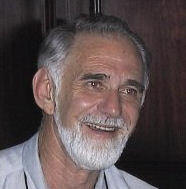
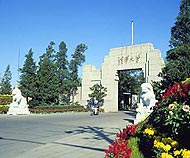
 University
in China is not like we have in the UK or Australia. Students remain in
fixed classes, have a class monitor and a communist party informer. The
courses are fixed with effectively no flexibility. Cheating, if not
encouraged, is overlooked. In fact, when some students say they are
preparing for examinations, they really mean they are preparing their
cheating strategy. My wife, a graduate of Shanghai University, refused to
believe me when I told her that I did not cheat in exams at university in
Australia, that in Australia, such cheating is considered a disgrace and
would result in expulsion.
University
in China is not like we have in the UK or Australia. Students remain in
fixed classes, have a class monitor and a communist party informer. The
courses are fixed with effectively no flexibility. Cheating, if not
encouraged, is overlooked. In fact, when some students say they are
preparing for examinations, they really mean they are preparing their
cheating strategy. My wife, a graduate of Shanghai University, refused to
believe me when I told her that I did not cheat in exams at university in
Australia, that in Australia, such cheating is considered a disgrace and
would result in expulsion. 
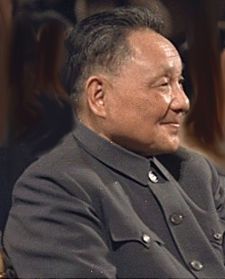
 of
Studies (DOS) with Holmes Colleges (China). Holmes is a company based in
Melbourne and was the first foreign company to become formally involved in
the education process in China. There were 6 campuses, 3 in Shanghai and 3
in Qingdao (where the Olympic sailing was staged). Two of the campuses
were housed in universities where our students were hoping to move to
James Cook University in Oz. Three other campuses were in middle schools
and one was a Holmes campus for adult students. You can imagine that I did
a lot of travelling as the DOS. Part of the job was recruitment of
teachers who were hard to come by and after my experiences at Informatics,
I had it in for Yanks. Late one night I got a phone call in answer to an
advertisement I had placed for English teachers. By his accent he was
clearly American and being a bit grumpy at the time, told him I didn’t
want to employ Americans. He promptly told me he was going to change my
mind about American teachers. I met him the following day, with an
American woman, both trained teachers. Well, how wrong could I have been;
they were the best teachers I saw in my 8 years in China. The guy had to
go back to New York after 9/11.
of
Studies (DOS) with Holmes Colleges (China). Holmes is a company based in
Melbourne and was the first foreign company to become formally involved in
the education process in China. There were 6 campuses, 3 in Shanghai and 3
in Qingdao (where the Olympic sailing was staged). Two of the campuses
were housed in universities where our students were hoping to move to
James Cook University in Oz. Three other campuses were in middle schools
and one was a Holmes campus for adult students. You can imagine that I did
a lot of travelling as the DOS. Part of the job was recruitment of
teachers who were hard to come by and after my experiences at Informatics,
I had it in for Yanks. Late one night I got a phone call in answer to an
advertisement I had placed for English teachers. By his accent he was
clearly American and being a bit grumpy at the time, told him I didn’t
want to employ Americans. He promptly told me he was going to change my
mind about American teachers. I met him the following day, with an
American woman, both trained teachers. Well, how wrong could I have been;
they were the best teachers I saw in my 8 years in China. The guy had to
go back to New York after 9/11.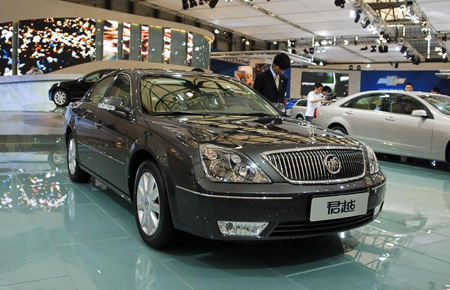 stores
and buy a TV set, they bring it to you and open the box, plug it in, turn
it on and tune the stations for you. There was a time of course when
Chinese products were rubbish, but not now. In Shanghai they manufacture
GM cars and one they badge as a Buick is in fact a Holden Commodore, but
fitted out with leather and a smaller V6 engine.
stores
and buy a TV set, they bring it to you and open the box, plug it in, turn
it on and tune the stations for you. There was a time of course when
Chinese products were rubbish, but not now. In Shanghai they manufacture
GM cars and one they badge as a Buick is in fact a Holden Commodore, but
fitted out with leather and a smaller V6 engine.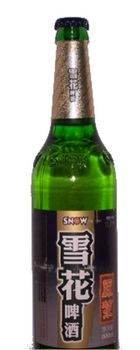 Apart
from Tsingtao, the other popular Chinese beer is Snow beer, which can be
found all over China now, originating in Shenyang in Inner Mongolia in the
far north. There are joint venture breweries making Becks, Hahn, Heineken,
Carlsberg, Fosters and a New Zealand beer called Carbine with the
racehorse head of the Melbourne Cup winner on the label. A bottle of
Carlsberg (640 mL) costs 6 RMB (about one dollar) and that is about the
price for most of the foreign beers. Tsingtao costs about 60 cents a
bottle. Have to confess to helping their beer industry prosper.
Apart
from Tsingtao, the other popular Chinese beer is Snow beer, which can be
found all over China now, originating in Shenyang in Inner Mongolia in the
far north. There are joint venture breweries making Becks, Hahn, Heineken,
Carlsberg, Fosters and a New Zealand beer called Carbine with the
racehorse head of the Melbourne Cup winner on the label. A bottle of
Carlsberg (640 mL) costs 6 RMB (about one dollar) and that is about the
price for most of the foreign beers. Tsingtao costs about 60 cents a
bottle. Have to confess to helping their beer industry prosper. 